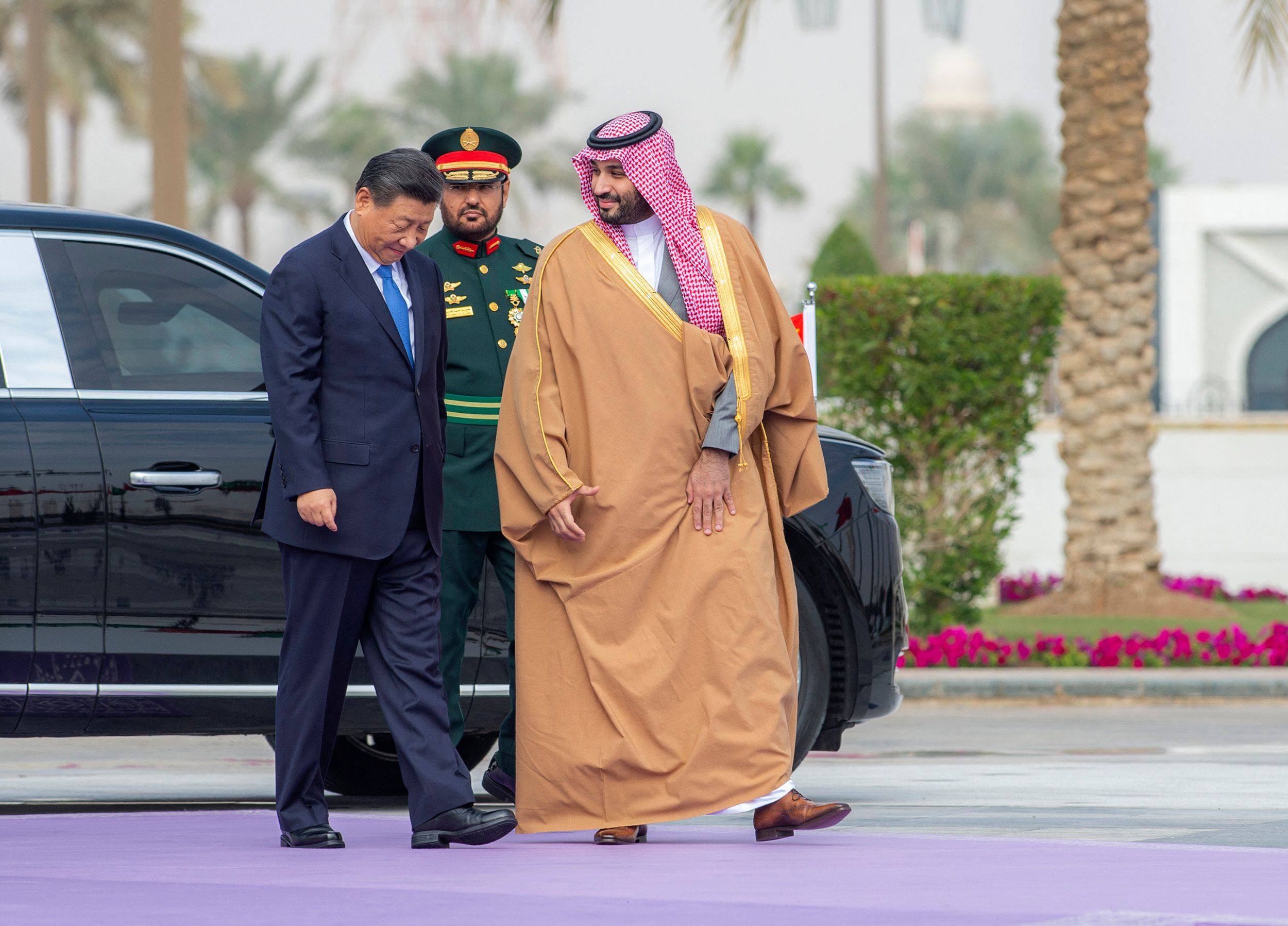 China plans to cooperate with Saudi Arabia and other Gulf countries in the fields of nuclear energy, nuclear security and space exploration, Chinese President Xi Jinping has said at a summit with rulers and officials from the six Gulf Cooperation Council (GCC) countries – Bahrain, Kuwait, Oman, Qatar, Saudi Arabia and the United Arab Emirates – during a three-day visit to Saudi Arabia to attend the first China-Arab States Summit and the China-GCC Summit, and pay a state visit to Saudi Arabia at the invitation of King Salman.
China plans to cooperate with Saudi Arabia and other Gulf countries in the fields of nuclear energy, nuclear security and space exploration, Chinese President Xi Jinping has said at a summit with rulers and officials from the six Gulf Cooperation Council (GCC) countries – Bahrain, Kuwait, Oman, Qatar, Saudi Arabia and the United Arab Emirates – during a three-day visit to Saudi Arabia to attend the first China-Arab States Summit and the China-GCC Summit, and pay a state visit to Saudi Arabia at the invitation of King Salman.
Both China and Saudi Arabia described the visit as a historic event ushering in a new era of relations between Beijing and the Middle East, a region that once had a mainly oil-based relationship with China, a major consumer of the Gulf’s fossil fuel exports and looked primarily to the US as a strategic ally. However, Arab states are increasingly building broader ties with China, which sees the region as an important conduit on its Belt and Road Initiative needed to reach trading partners in Europe. “Working with many parties is what will move us, and the whole world, to a new stage of growth and prosperity,” Saudi foreign minister, Prince Faisal bin Farhan told a news conference. “We can’t build this growth and prosperity by distancing ourselves from opportunities from one side or the other,” he said.
In his speech, Xi said that China and the Gulf countries would establish a shared “forum” for peaceful uses of nuclear energy as well as a China-Gulf centre for nuclear security. Saudi Arabia has long sought to develop a civilian nuclear programme in order to reduce its dependence on oil. It also wants to further develop its uranium resources, which are believed to be extensive enough to allow for export. However, Saudi Arabia has yet to award a contract for its first NPPs.
In 2018, the King Abdullah City for Atomic and Renewable Energy (KACARE) said Korea, Russia, China, the USA and France are among the contenders in the bid. Originally, Saudi Arabia planned to construct 16 nuclear units, but this has was thenscaled back to two large NPPs. It has projected 17GWe of nuclear capacity by 2040 to provide 15% of the power then, along with over 40GWe of solar capacity. Plans for small reactors for desalination are also under development.
However nuclear was only one of many areas discussed for greater co-operation during the China-Gulf summit. Energy is among China’s top priorities in the Gulf over the next three to five years, Xi said during his speech, adding that China would continue to import large amounts of crude oil from the Gulf countries and planned to increase imports of natural gas. He added that China supports Saudi Arabia's major development initiatives such as Vision 2030 and the Middle East Green Initiative and will actively participate in Saudi Arabia's industrialisation and contribute to the diversified development of its economy.
China will increase communication and coordination with Saudi Arabia on energy policy, expand the scale of crude oil trade, enhance cooperation on exploration and development, and deliver on the Sino-Saudi Gulei Ethylene Complex Project and other large-scale energy cooperation projects, said Xi. Shina will also expand cooperation in such areas as e-commerce, digital economy, clean energy, high technology and space research and development, and enhance cooperation in law-enforcement, counter-terrorism and deradicalisation, said Xi.
For his part, the Saudi crown prince Mohammed bin Salman said Saudi Arabia is China's comprehensive strategic cooperative partner in the Middle East. Saudi Arabia is striving to realise its Vision 2030. Saudi Arabia looks forward to working with China to enhance mutual support, and jointly elevate their comprehensive strategic partnership to a higher level, he added.
Saudi Arabia will continue to actively engage in Belt and Road cooperation with China and expand trade and two-way investment. It welcomes more Chinese companies to take an active part in the industrialization process of Saudi Arabia, including the construction of major infrastructure and energy projects, and enhance cooperation in such areas as automobile industry, science and technology, chemical industry and mining, he said.
China is a “rising power” with great economic and technological capabilities, and Arab countries want to benefit from that, said Arab League Secretary-General Ahmed Aboul Gheit. “Especially,” he added, “because they don’t offer it to you with conditions.”
Image: Chinese President Xi Jinping has met with Gulf leaders in Saudi Arabia to discuss coopertion in the fields of nuclear energy, nuclear security and space exploration (courtesy of Associated Press)






